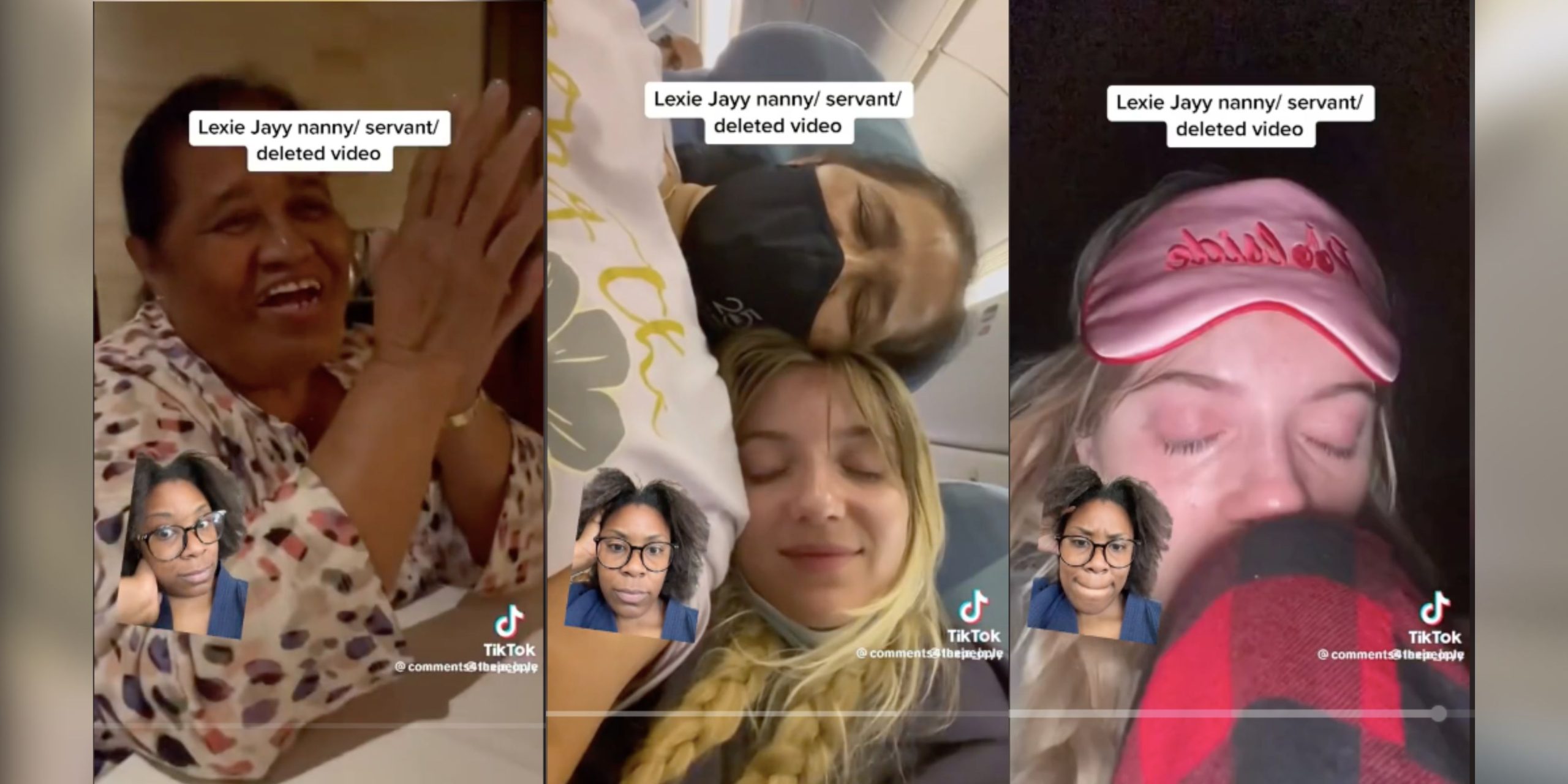A TikTok video posted by Lexie Jayy, a 29-year-old model and content creator, has drawn criticism and sparked a discussion about the treatment of overseas Filipino workers (OFWs), particularly domestic workers.\
In the video, which has gone viral with over 4 million views and 563,600 likes, Lexie shares that she is “moving” her childhood nanny, Elena, back to the Philippines after around 30 years of living with her family.
Watch on TikTok
While Lexie intended to share a heartwarming story about her relationship with Elena, the video received backlash from viewers, especially people of color, who questioned certain aspects of the situation.
Viewers raised concerns about why Elena hadn’t been able to visit her family in the Philippines earlier or why she hadn’t become an American citizen after three decades in the country.
Lexie’s video prompted a response from Lex, a Filipino American TikTok user, who called for greater awareness of the challenges faced by overseas Filipino workers. Lex highlighted the feminization of Philippine migration, with many OFWs, including nannies and domestic workers, seeking employment opportunities abroad due to limited options in their home country.
The controversy surrounding Lexie’s video sheds light on the larger issue of the treatment of migrant workers.
While the specific circumstances of Lexie’s family and Elena are unknown, the story reflects the experiences of many OFWs who dedicate significant portions of their lives to working for families abroad, only to be discarded or sent back home when they are no longer needed.
Advocacy groups estimate that Filipinos make up around 15% of the approximately 2 million domestic workers in the United States.
Lexie later posted a follow-up video in response to the criticism, acknowledging her “inappropriate” tone and expressing regret for any hurt caused. She stated her agreement with the broken immigration process and affirmed that Elena had received a competitive wage for her work. However, some viewers remained skeptical of Lexie’s apology, questioning its sincerity and suggesting it was professionally crafted.
While Lexie’s videos may have unintentionally sparked controversy, they have opened up a dialogue on the treatment of Filipino migrants and domestic workers.
The experiences of Elena and other OFWs highlight the challenges and injustices faced by those who leave their home country in search of better opportunities, and the conversation serves as a reminder of the need for greater protection and support for migrant workers.





